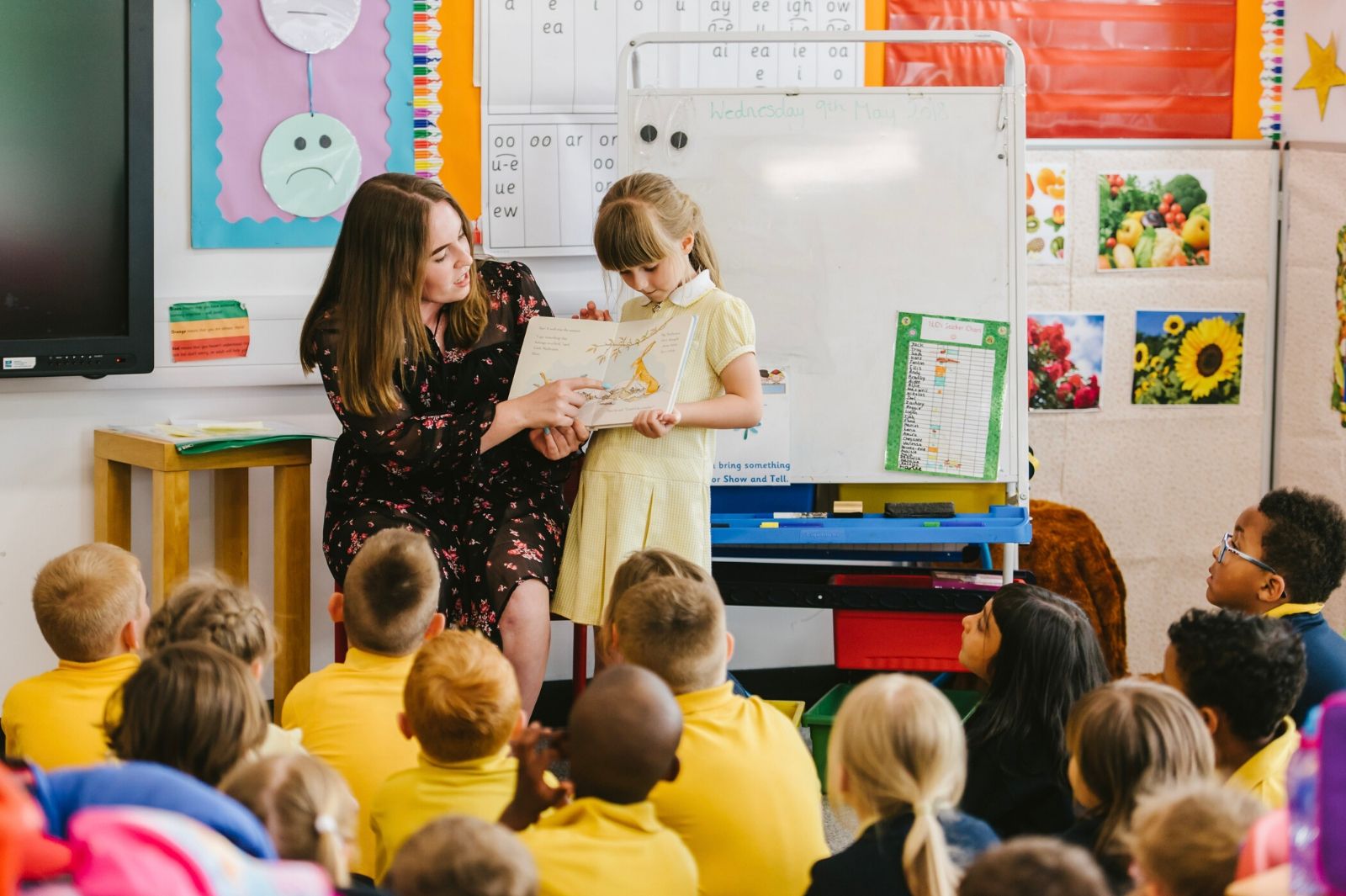On a literary mission: Why we engage with World Book Day
Date 27.02.2020

World Book Day is a charity whose mission is to give every child and young person a book of their own and celebrate authors, illustrators, books and reading.
The main World Book Day (WBD) 2020 event will be held on 5 March but today Joanne Barrow, Senior Lecturer in Education, talks about what WBD is all about.
It may be hard for some of us to imagine not having a book to hold, to read, to stroke or to sniff (yes, we book lovers are a strange bunch), but there are many children and young people who do not have that privilege. Each year, for the past 23 years, World Book Day makes this a possibility.
As part of the celebration each nursery, primary and secondary school who have registered to take part in the event will receive book tokens for each child and young person in their care. Bookshops will stock specially selected books that can be purchased for £1 – the value of the token – therefore making the prospect of children and young people owning their very own book to enjoy and share with friends and family, a reality.
Research carried out by World Book Day indicates that children and young people who participate in the event engage more with reading on a daily basis than those who do not. In fact, 1 in 4 pupils (25.2%) stated that receiving a World Book Day Token allowed them to purchase their very first book, with this number increasing to 3 in 10 (32.9%) amongst children and young people receiving free school meals*.
Therefore, without World Book Day, the pleasure and enjoyment of reading, that many of us take for granted would not be experienced by over 50% of children and young people in UK schools.
A staggering figure!
Schools up and down the country celebrate in a variety of ways, from nurseries and schools asking children and staff to dress up as their favourite character from their favourite children’s book to inviting authors and illustrators to spend the day in their schools.
One of the University’s partnership schools, Hayfield Cross Church of England school have done just that, having invited author/illustrator David Barrow (my husband!) in to carry out workshops with the children and discuss some of his processes, including characterisation and how an illustrator interprets language and movement in their drawings. Such activities aim to inspire and motivate the children to both read for enjoyment and find out what it is like to work as an author/illustrator.
Unfortunately, not every school has the budget to fund an author/illustrator visit. Some schools overcome these financial restraints by simply encouraging the children to bring in their favourite book from home or select one from the school library to share with a friend or a reading buddy. This is equally as important and demonstrates to children and young people that reading is not just a solitary activity, it can be socially engaging and a lot of fun.
My own passion for encouraging children to read for pleasure, has led to a collaboration with author/illustrator Helen Stephens. I have created a unit of work for Key Stage 1 and 2 teachers, which uses Helen’s book How to Hide a Lion as a stimulus for learning across the Primary national curriculum. The resource will be available as part of her school visits package.
Schools in Northamptonshire also have the opportunity to become a member of the Northamptonshire Children’s Book Group. By joining, schools have the opportunity to have visiting authors for the price of the yearly membership as well as many other book related events.
At the University of Northampton we encourage our students to fully engage with World Book Day, particularly those studying on our Primary Education 5-11 (QTS) BA (Hons) and PGCE Programmes who are currently on their school experience placements.
As part of their training, we expect students to contribute to the wider life and ethos of the school in which they are placed, making World Book Day the perfect opportunity for them to meet this expectation.
Furthermore, our Year 3 students have completed an English assignment which explored the importance of reading for pleasure, meaning that what they have learnt at University is being seen first hand during this exciting and magical event.
Next week we will be showcasing the amazing work that our trainee teachers are doing on their placement with the support and guidance of our fabulous partnership schools.
More to follow about these but, for now, I hope that people reading this post will also enjoy extolling the pleasures of reading during World Book Day next week.
*National Literacy Trust, 2017.